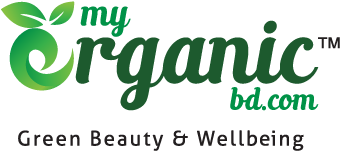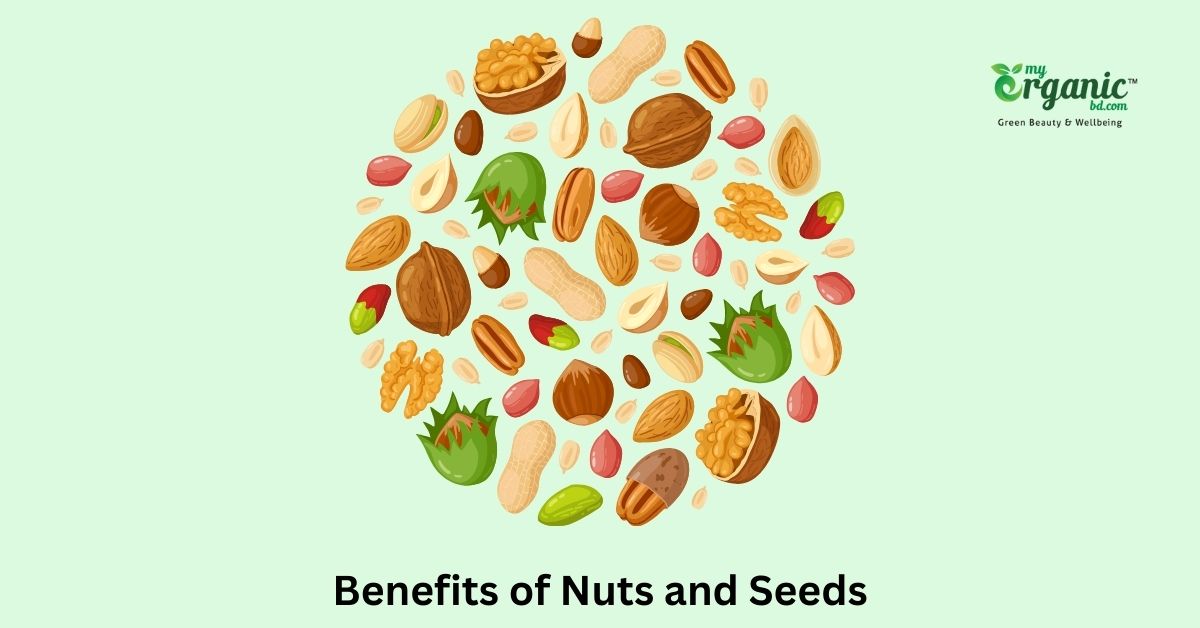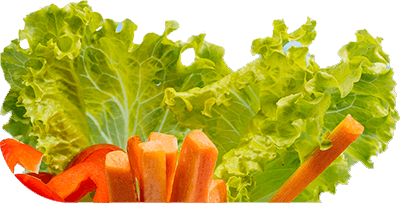Nuts and seeds are a compact source of vitamins and minerals, but it is often overlooked. They have been part of the human diet for ancient times. As we evolved around different nuts and seeds, they play a vital role in our organic wellness. Nuts and seeds are packed with healthy protein, fat, fiber, vitamins, and other bioactive components. With healthy fats and antioxidants, they are also a key food for our heart health. Not only the heart, but also we get special care for brain boosting, weight management, digestive health, skin, and beauty. Let alone the bone health and disease prevention benefits! Simply, they are one of the most sustainable food sources for the planet.
Hi, we are MyOrganicBD. We are a team of doctors, nutritionists, and microbiologists working together to create in-depth knowledge about healthy food and an organic lifestyle.
In this article, we will discuss nine types of nuts and seeds, nutrition, and the health benefits of different nuts and seeds, and answer common questions about them. Keep reading.
What are nuts & seeds?
Nuts and seeds are a compact source of healthy fats, plant protein, fiber, vitamins, minerals, and antioxidants. As eggs contain all the components of growing a new life, nuts and seeds also contain all the nutrition to support the growth of a plant. That’s why they are often the most nutritious parts of the plants. Botanically, nuts are hard-shelled fruits that also contain a seed. From the perspective of wellness, they have immense potential to improve and support your health and wellness. They contain several components that support heart health, brain function, hormone balance, and many more. Nuts and seeds usually contain high energy and good fiber. If you think enough, all of humanity depends on the nourishment of seeds. Rice, wheat, and other grains and seeds are the fuel of most of humanity. Those are just the staples, but there are thousands of nuts and seeds that come with great potential for human health.
We will discuss the healthiest and easy to find ones in this article.
Are they a superfood?
Yes, nuts and seeds are superfoods for their compact nutrients and health-promoting molecules. They contain high protein, fiber, antioxidants, and essential micronutrients. Regular consumption of nuts and seeds can improve gut health, blood sugar, protection from oxidative stress, and inflammation. Depending on nuts and seeds, you may also get unique benefits like brain boost, heart health, and detoxifying.
Please read – What are the Basics of Superfoods? Benefits, Types, List & Uses for Natural Wellness to know more.
Difference between nuts & seeds?
Here are the differences between nuts and seeds-
| Sl No | Nuts | Seeds |
| Definition | Nuts are hard-shelled fruits containing seeds inside. | Seeds are embryonic plants. |
| Function | Protect the seed inside. | Store nutrients and support new plant growth. |
| Main Nutrients | Nuts often come with higher monounsaturated fats, protein, vitamin E, magnesium & calcium. | Seeds are often richer in omega-3, zinc, fiber, and plant components. |
| Uses | Snacks, butter, and baking are the common uses. | Smoothies, baking, toppings, and energy bars are the main uses. |
| Storage | Nuts stay fresh for weeks to months in dry airtight places. | Many seeds can last quite long in storage, while some may need refrigeration. |
What Are the Health Benefits of Eating Nuts and Seeds?
Nuts and seeds are the easiest way to nourish your body naturally. They come with compact and diverse nutrients. So, their health benefits are also diverse. Let’s discuss the benefits of nuts and seeds below.
- Heart health
Nut and seeds contain high fiber, monounsaturated, and polyunsaturated fat. They help to increase the HDL (good cholesterol) and decrease LDL (bad cholesterol). Some nuts and seeds also contain vitamin E, which supports artery health.
- Brain Health
Chia, seeds, walnuts, and flax come with excellent brain-supporting abilities. They are rich in omega-3 fatty acids, which benefit memory, focus, and overall brain health.
- Weight management
They contain a high amount of fiber, protein, and healthy fats, keeping you full longer. Nuts and seeds are known for their hunger-reducing effects. However, you must be mindful, as some of them are high in calories.
- Hormonal balance
Some nuts and seeds, like flax, sesame, and pumpkin, contain zinc, magnesium, and legumes. They are an important component for hormonal balance and reproductive health.
- Blood sugar control
Most nuts and seeds contain a low glycemic index. They minimize the insulin spikes in the blood. Fibers also have roles in managing insulin resistance.
- Digestive Health
Nuts and seeds contain both soluble and insoluble fiber. They help maintain digestive health and feed the beneficial gut bacteria.
- Anti-inflammatory effect
They contain antioxidants, omega-3s, and polyphenols, providing an anti-inflammatory effect. This can protect you from chronic inflammation and other chronic diseases like heart disease in the long run.
- Bone and skin health
They contain minerals like magnesium, calcium, copper, and selenium. Those components contribute to bone density, collagen production, and skin health.
They help to glow beauty within!
Are There Any Side Effects of Eating Nuts and Seeds?
Yes, there might be several side effects of nuts and seeds. Few people may have allergies to nuts and seeds. Overconsumption may also result in gas, bloating, and diarrhea due to high fat. They are often very high in calories due to high fat content. You may gain weight if you eat them mindlessly. Processed nuts and seed products may contain other additives like salt and sugar, which may also lead to some wellness problems.
What are the most popular nuts & seeds? A Summary
Popular nuts and seeds can vary depending on where you live. Not all nuts and seeds are equally popular in different locations.
Here is a general list of the most popular and easily available nuts and seeds :
- Almonds
- Walnuts
- Hazelnuts
- Cashews
- Macadamia nuts
- Pine nuts
- Pistachios
- Brazil nuts
- Pecans
- Peanut
- Chestnuts
- Pumpkin seeds
- Chia seeds
- Flaxseeds
- Sunflower seeds
- Hemp seeds
- Poppy seeds
- Sesame seeds
- Quinoa
- Mustard seeds
- Nigella seeds
- Water Melon
Let’s go deeper: top 22 most popular healthy nuts & seeds, their benefits, and uses.

Almonds
Almonds are rich in vitamin E, calcium, fiber, magnesium, and high-quality plant protein. They come with monounsaturated fat, which helps to reduce LDL cholesterol and potentially minimize heart disease risk. With high magnesium and fiber, they also reduce blood sugar after heavy meals. It can be beneficial for people with obesity and diabetes. Vitamin E and antioxidants provide anti-aging and skin health benefits. You can eat it as a snack, salad, make almond butter, or bake.
To know more, please check Incredible Organic Almonds: Everything you need to know.

Walnuts
Omega-3 fats, protein, antioxidants, magnesium, and fiber are key nutrients of walnuts. Omega-3 fatty acids play a crucial role in brain health and cognitive function. With anti-inflammatory properties, walnuts reduce the risk of heart disease. They can also help in blood sugar management. You can eat it with oatmeal, baked goods, salad, or as a snack.
Please go through Amazing Organic walnuts : A complete guide.
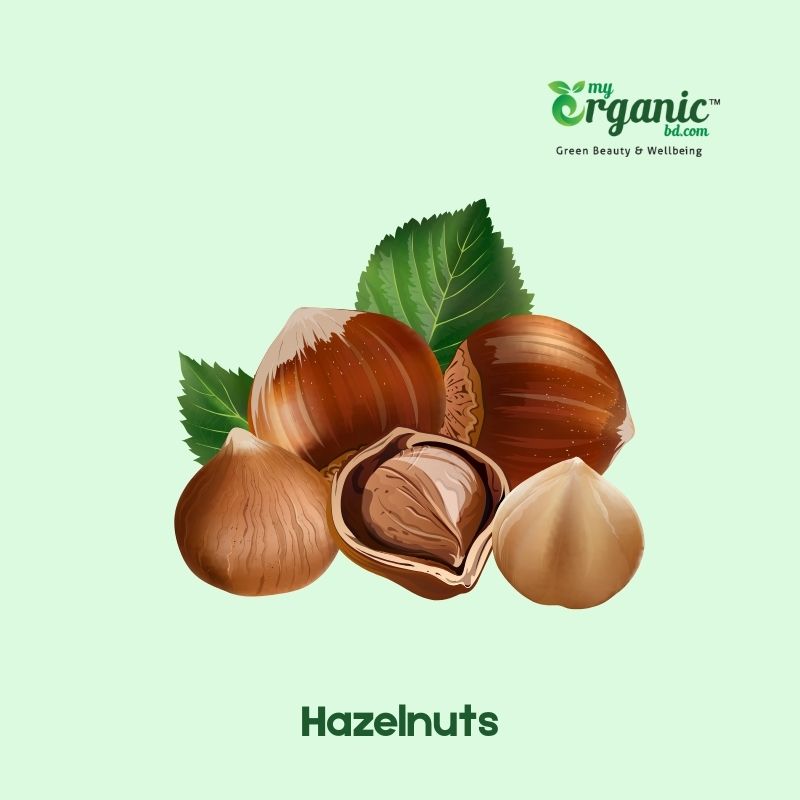
Hazelnuts
Hazelnuts come with monounsaturated fat, vitamin E, magnesium, fiber, and copper. They support heart health with good fats, reducing the risk of heart disease. With high antioxidants, they can protect the body from oxidative stress. They also offer brain health benefits. You can enjoy them as a snack, sprinkles, baked goods, or hazelnut butter.
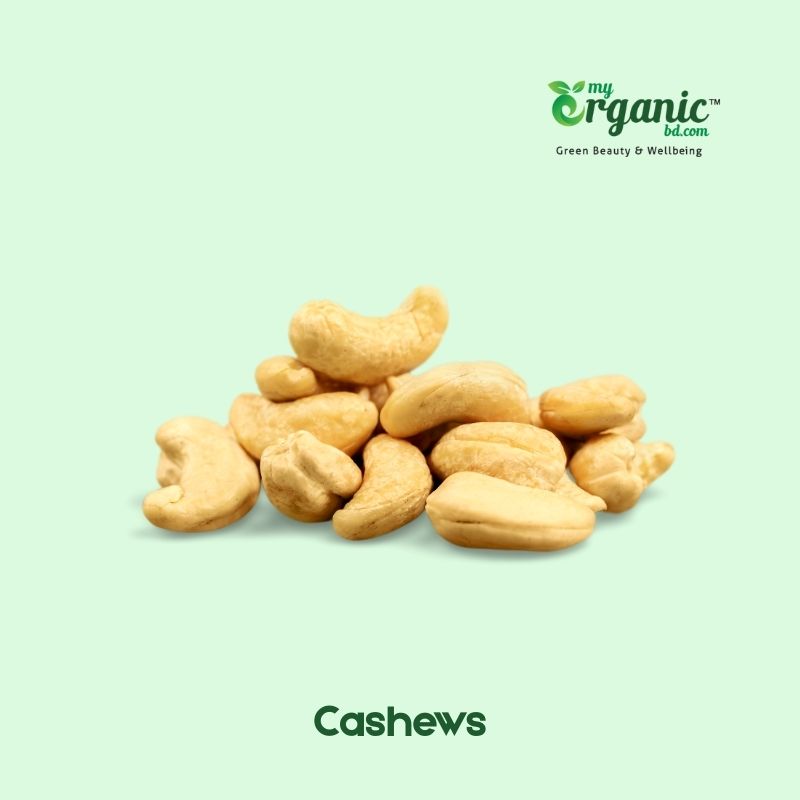
Cashews
Cashew nuts contain magnesium, Zinc, Vitamin K, protein, and Iron. With monounsaturated fat, they can reduce cholesterol levels in the blood. High magnesium and vitamin K can provide bone health benefits. People with diabetes may also benefit from it. You can blend cashew nuts, eat it as a snack, or make salad with it.
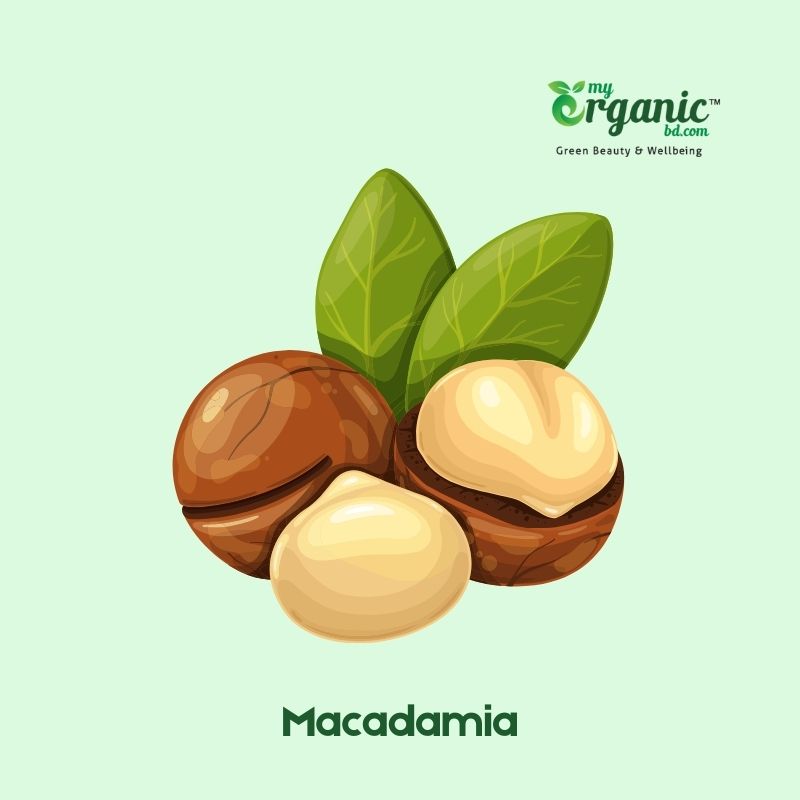
Macadamia
Macadamia nuts are high in monounsaturated fat, thiamine, manganese, fiber, and Iron. They are one of the best heart-healthy nuts. With dense antioxidants, they can protect you from oxidative stress. You can also use them for your weight control journey. They can be eaten as a snack, butter, or salad.
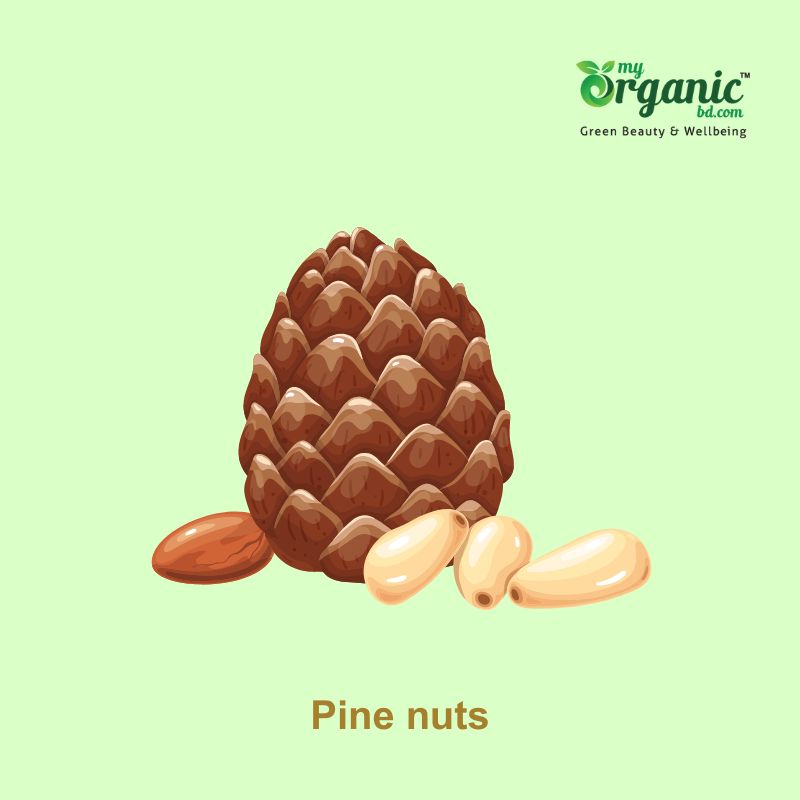
Pine nuts
Pine nuts are not true nuts, basically they are seeds like pecans. They are basically edible seeds of pine trees. They are often used in cooking. Pine nuts are a good source of vitamin K magnesium and healthy fats including Omega-3s. They are good for heart, brain health, and weight management. Pine nuts also contain antioxidants and many other micro nutrients.

Pistachios
Vitamin B6, potassium, protein, fiber, and antioxidants are the key nutrients of pistachio nuts. They also contain high monounsaturated fat, which promotes heart health. They come with fiber and low GI, which can help you maintain blood sugar levels. They also contain lutein and zeaxanthin, which are beneficial for eye health. You can eat them as a snack, add them to baked goods, or make a healthy salad with them.
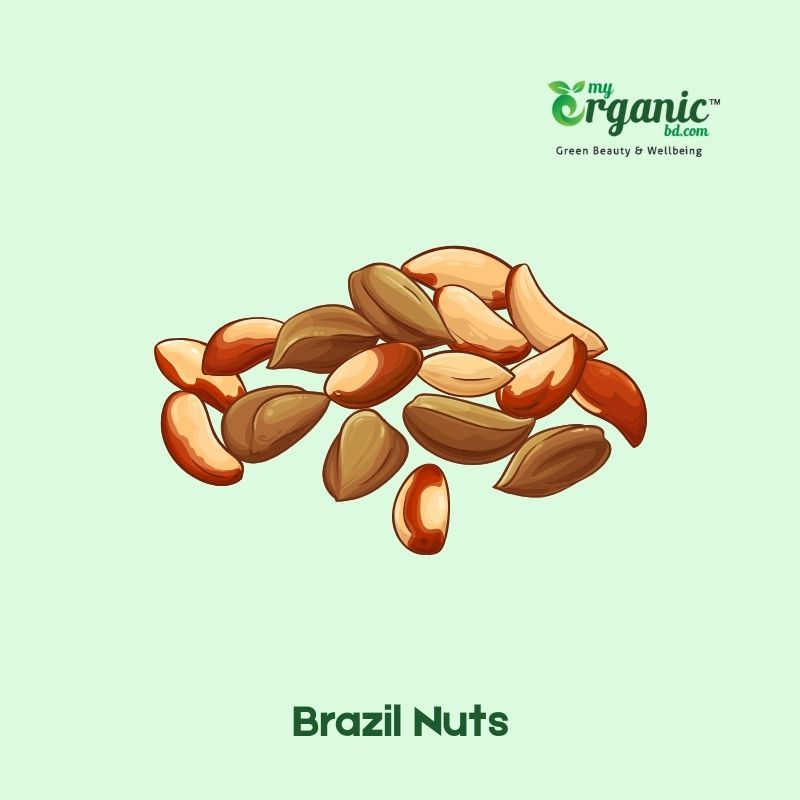
Brazil Nuts
Brazil nuts contain selenium, magnesium, phosphorus, healthy fats, and thiamine. With high selenium, they support thyroid and sexual health functions. It also acts as a powerful antioxidant. Monounsaturated fats are also great for heart health. You can eat them as a snack, salad, smoothies, or add them to baked products.
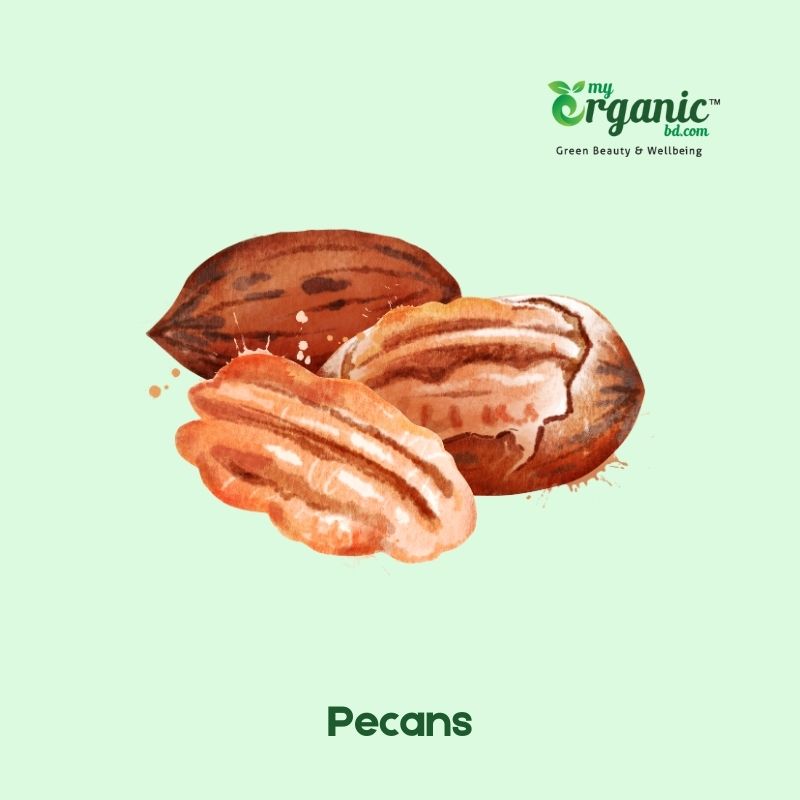
Pecans
Pecans come with healthy monounsaturated fats, vitamin E, fiber, magnesium, and zinc. They help reduce blood cholesterol with healthy fats. They also come with powerful anti-inflammatory and antioxidant effects. With low GI and good fiber, they can easily help you with blood sugar problems. You can add them to salad, baked products, smoothies, or eat them as a healthy snack.

Peanuts
Peanuts are rich in protein, folate, niacin, vitamin E, and magnesium. With high-quality protein, they can help with muscle development and satiety. Monounsaturated fats can improve the wellbeing of the heart. Their rich antioxidants can also protect you from oxidative stress. You can enjoy them as a snack, spread them as peanut butter, or eat them as a side dish.
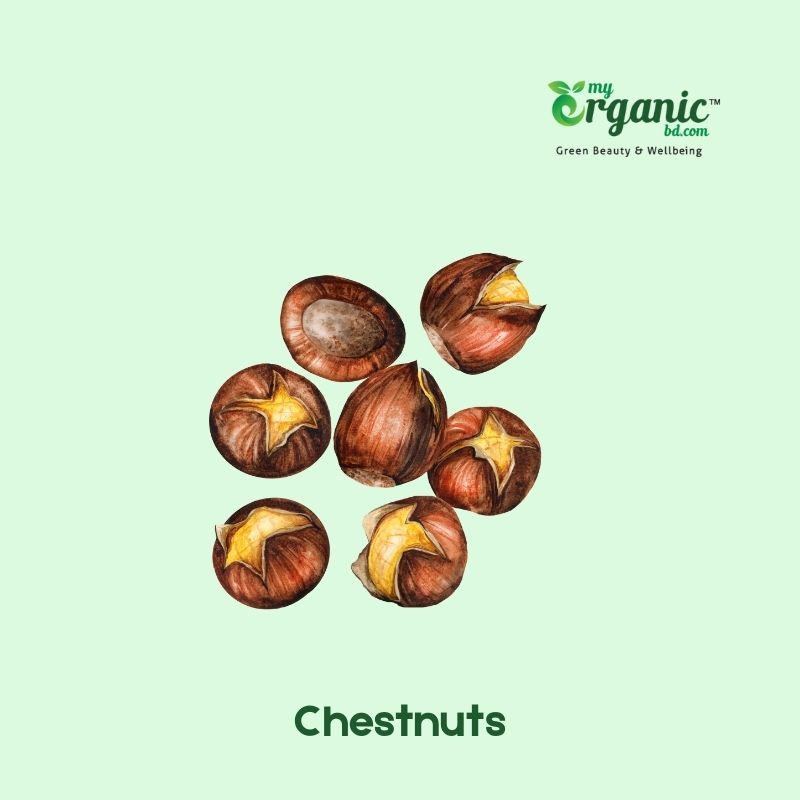
Chestnuts
Chestnuts are well known for their mild sweet flavor and various culinary uses. They contain starch and low fat content. Chestnuts have micro nutrients like fibers, copper, minerals, etc.
They have Vitamin C and antioxidants. They support heart health, improve digestions, help control blood sugar according to WebMD.
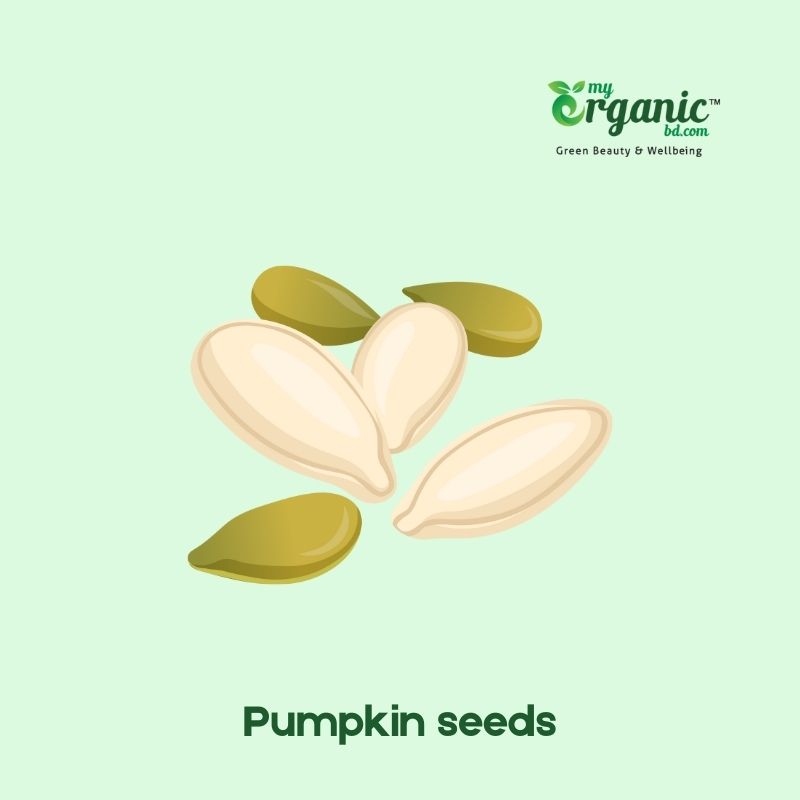
Pumpkin seeds
Pumpkin seeds contain magnesium, zinc, protein, iron, and antioxidants. They support heart health, the immune system, and improve sleep quality. They also come with anti-inflammatory compounds. You can enjoy them roasted as a snack, sprinkled over salad, or in smoothies.
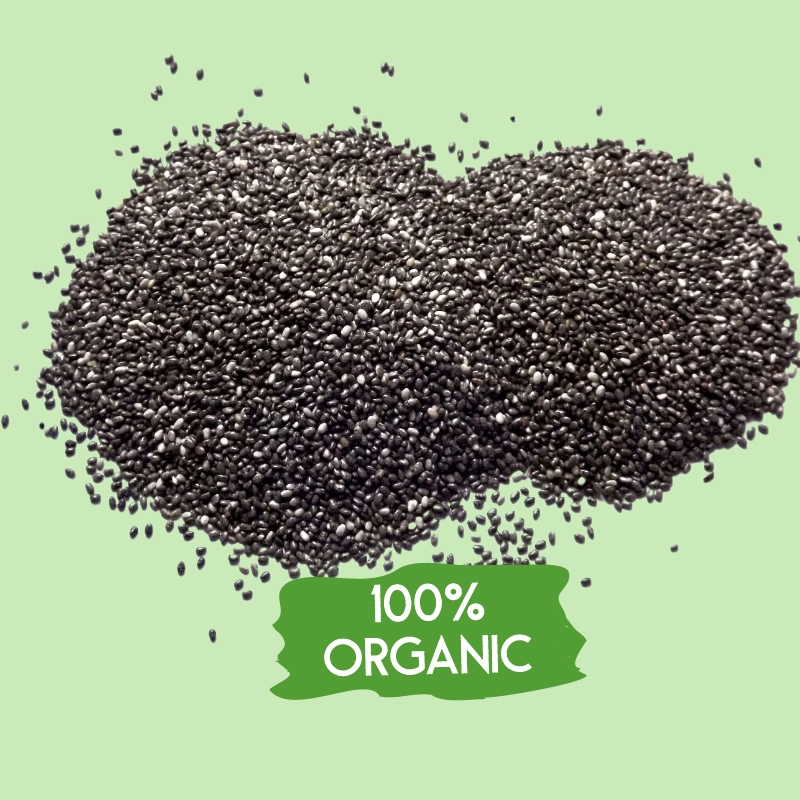
Chia seeds
Chia seeds are full of fiber, fatty acids, protein, omega-3s, magnesium, and calcium. They are one of the most heart-friendly seeds you can eat. They also support digestion, maintain blood sugar levels, and promote fullness. You can enjoy them with yogurt, smoothies, oatmeal, or make chia pudding. please read the organic chia seeds – healthy superfood you must know.
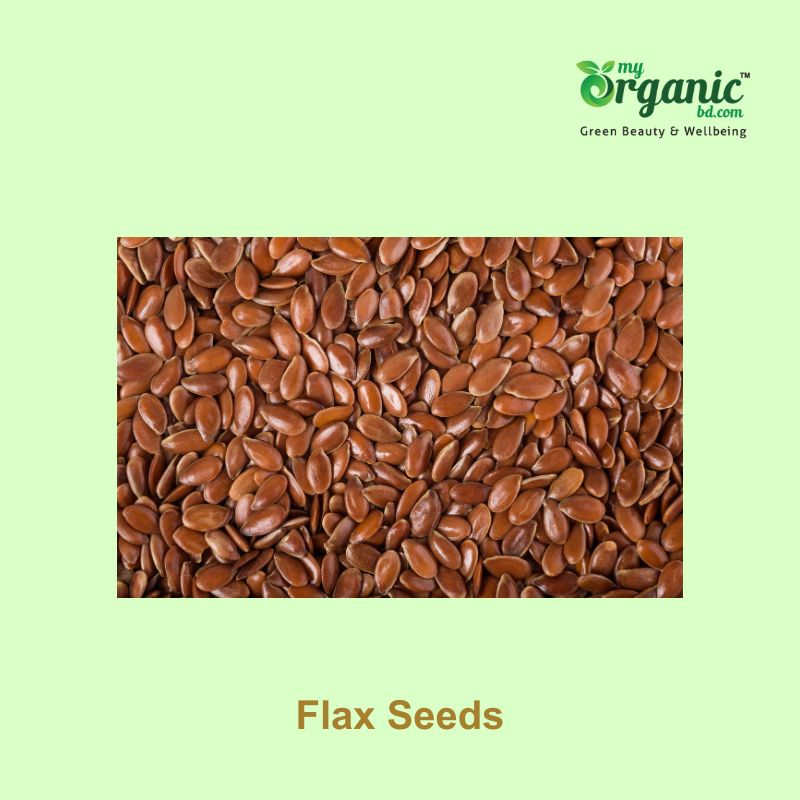
Flax Seeds
Flax seeds also known as linseeds is a small seed with oil that originates from the middle east thousand years ago. It is rich in omega 3 fatty acids, fibers and lignans. This lignan has antioxidant and anti-inflamatary properties that reduce the risk of chronic diseases according to the National Institutes of Health ( NIH). Flaxseeds benefit in weight loss, improve heart health, Diabetes, and digestive health according to healthline. It is one of the healthiest seeds. We wrote a detailed article on flaxseeds for you.
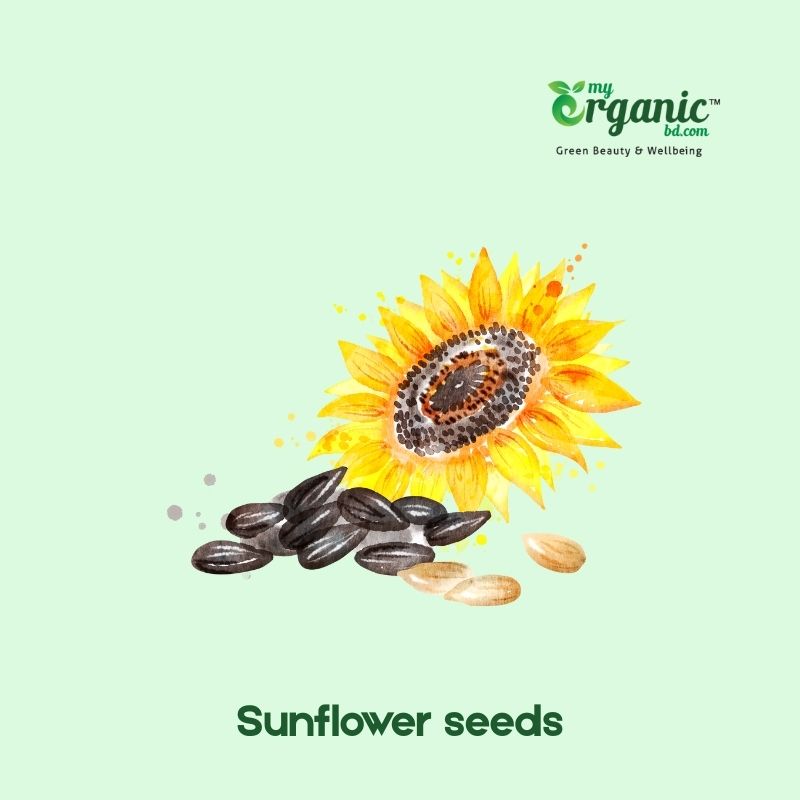
Sunflower seeds
Sunflower seeds contain a good amount of vitamin E, selenium, magnesium, and healthy fats. They protect the cells from oxidative stress and promote skin health. With a high amount of magnesium, sunflower seeds can improve muscle and nerve function. You can enjoy them roasted, raw as snacks, or sprinkle them over salad and baked goods.
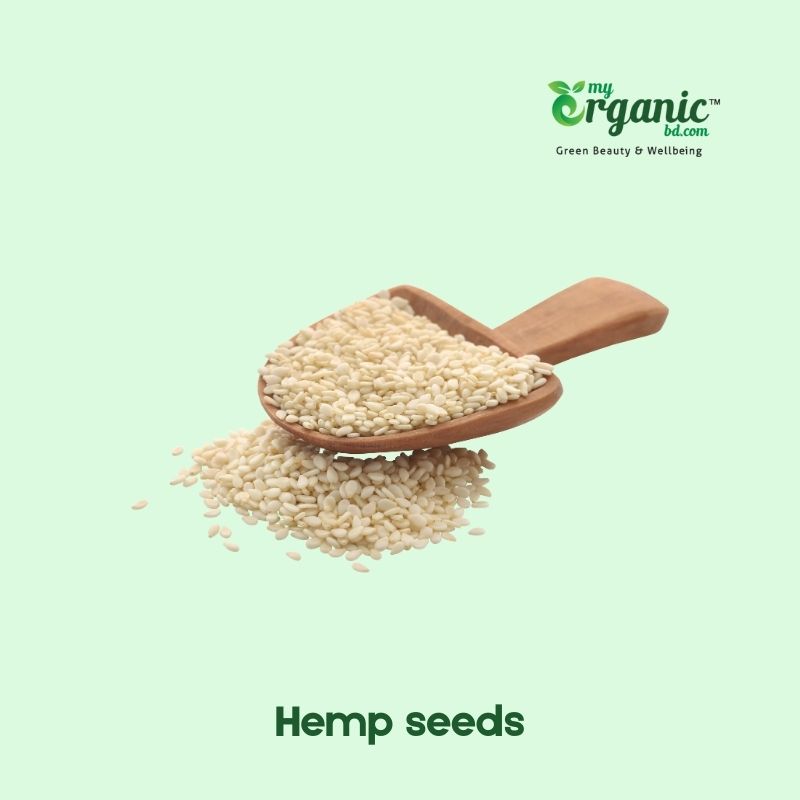
Hemp seeds
Hemp seeds are rich in protein, omega-3 and omega-6 fatty acids, iron, and magnesium. With their omega-3 fat content, it’s an excellent food for brain health and heart health. Protein can improve muscle health and metabolism. You can add it to smoothies, salad, or sprinkle it in different dishes.
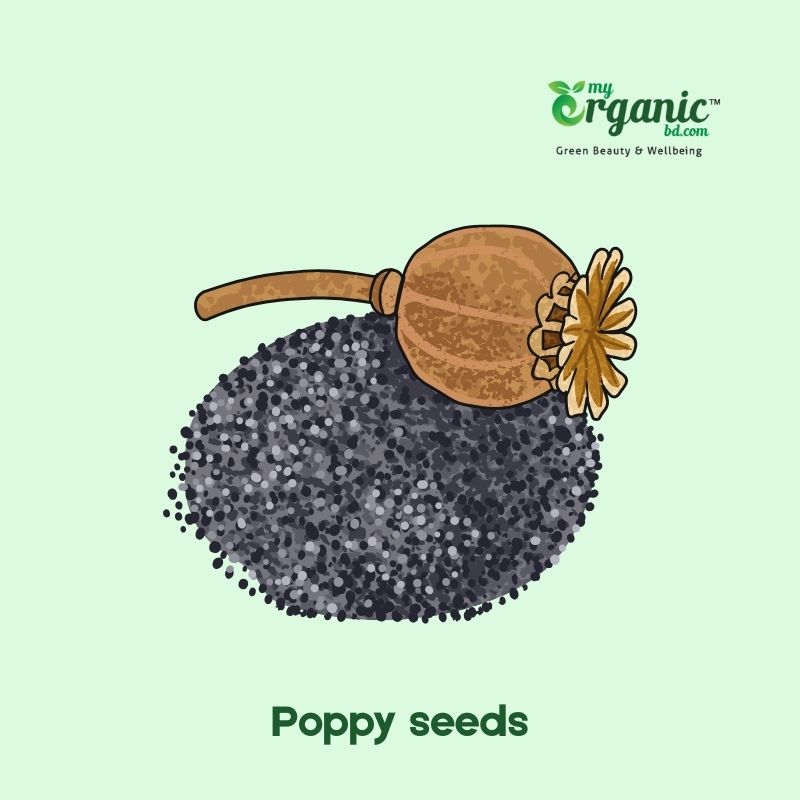
Poppy seeds
Poppy seeds are a great source of iron, magnesium, calcium, and fiber. They carry great benefits for bone health and density. Fiber can improve digestion and reduce sugar spikes. Magnesium can promote sleep quality. You can add them to curries and baking, and toppings.
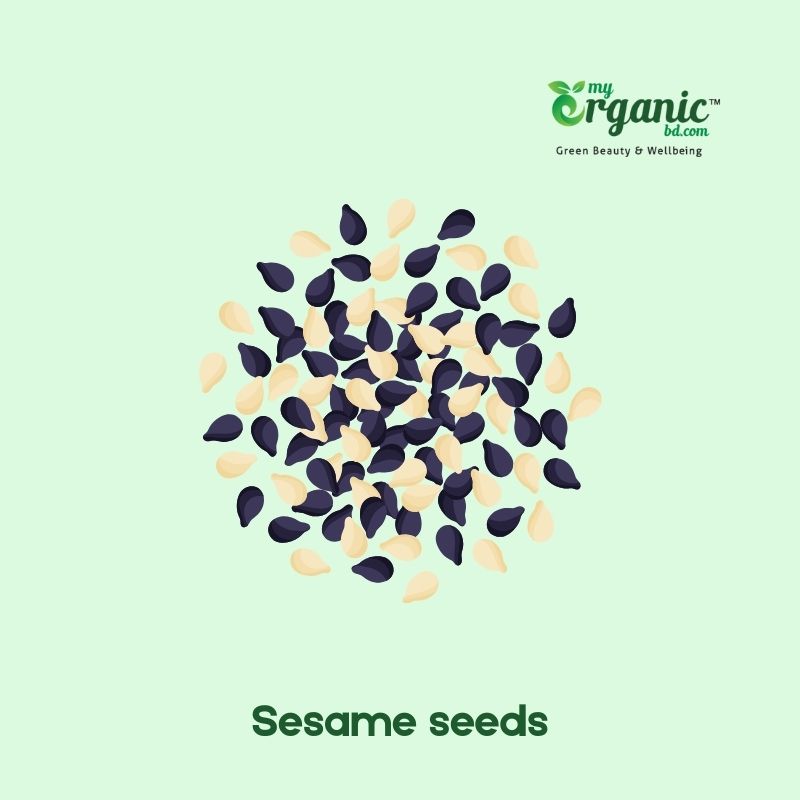
Sesame seeds
Sesame seeds are packed with calcium, zinc, copper, and powerful antioxidants. They can improve bone health and immunity. Antioxidants protect the body from oxidative stress and inflammation. You can sprinkle on salads, stir fries, or add to smoothies.
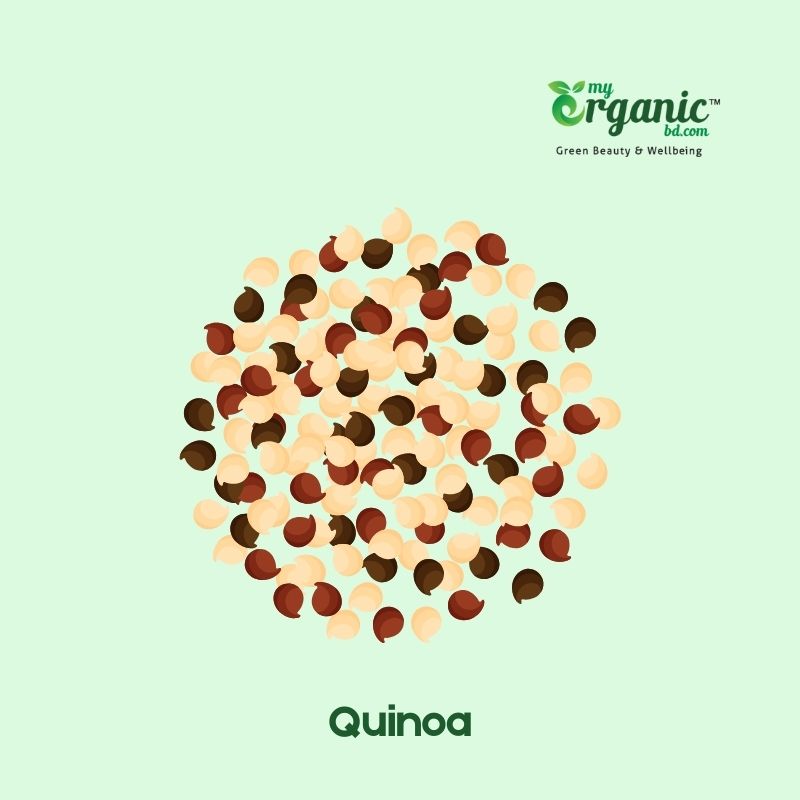
Quinoa
Quinoa contains dense protein, essential amino acids, and fiber. Those components can improve digestive health, benefit muscle health, and reduce the risk of heart disease. They also contain magnesium and iron. You can eat them as a substitute for rice or add them to salads.
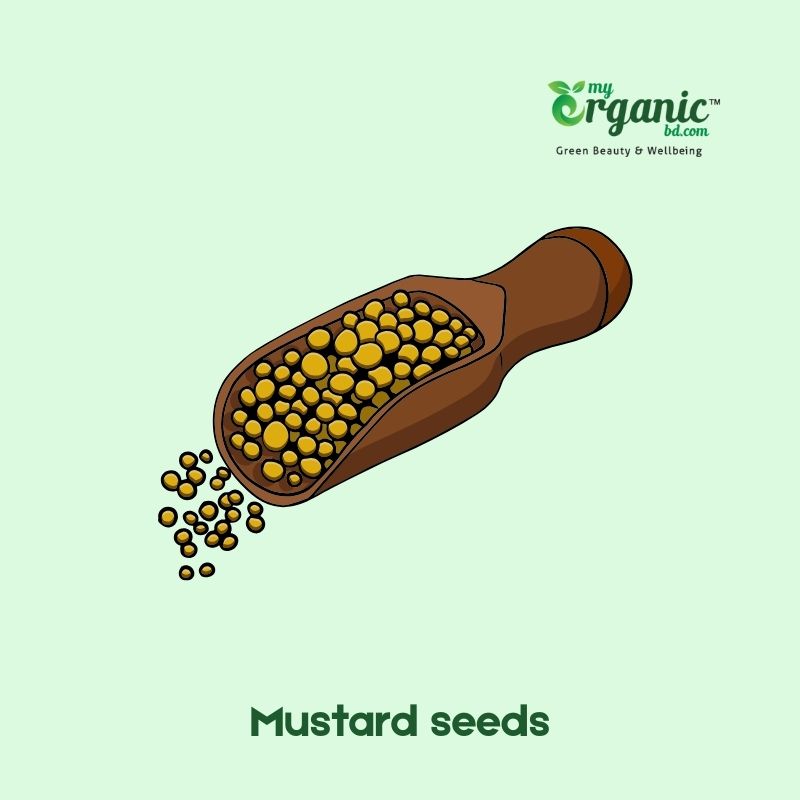
Mustard seeds
Mustered seeds contain selenium, magnesium, and omega-3 fatty acids. They offer digestion benefits, reduce inflammation, and support overall metabolism. It’s spicy and has a distinct flavor. You can add it to curries, pickles, and spice blends.
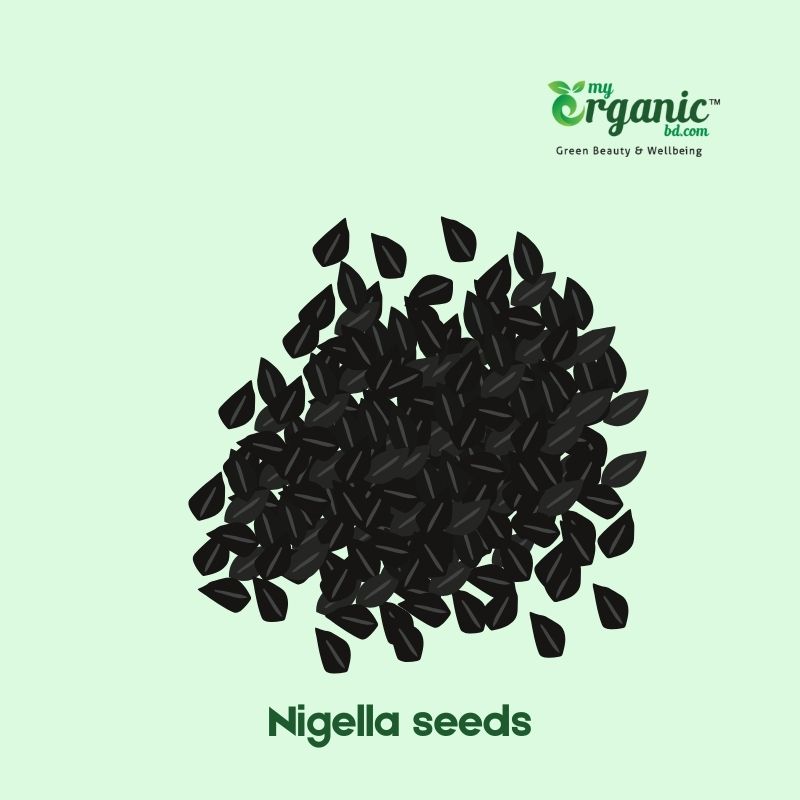
Nigella seeds
Nigella seeds are rich in antioxidants, iron, and essential oils. They fight with free radicals and reduce oxidative stress in the body. It also supports immunity and digestive health. You can add it to your bread, curries, sandwiches, or salad.
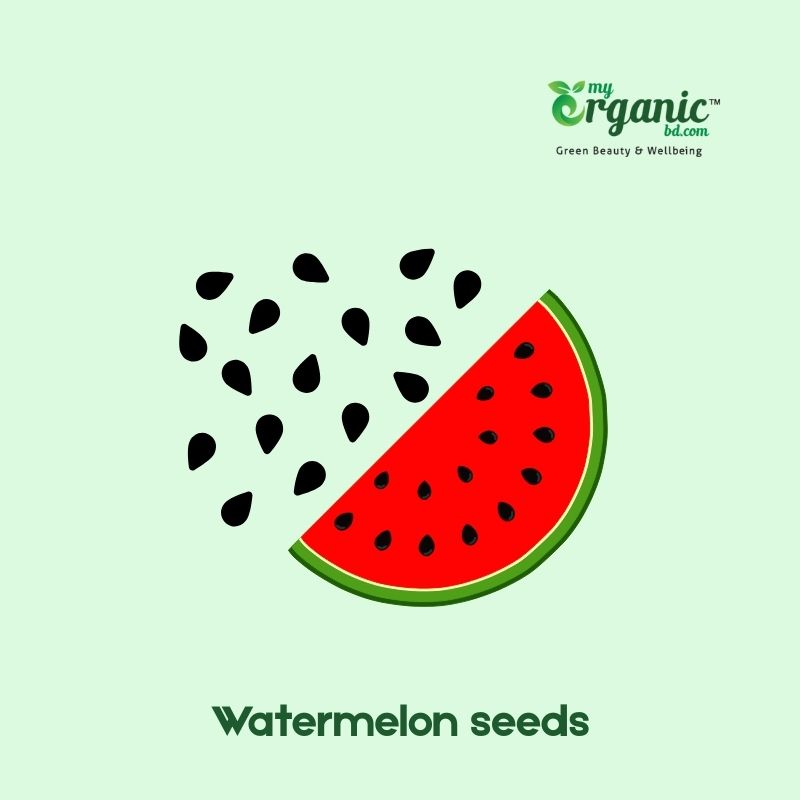
Watermelon seeds
Watermelon seeds contain protein, zinc, magnesium, and healthy fats. They support muscle function, metabolism, and bone health. You can eat roasted watermelon seeds and add them to salad, smoothies, and yogurt.
What are general nutritional facts about nuts & seeds?
Here are the general nutritional facts about nuts and seeds.
Healthy fats: Mostly monounsaturated (MUFA) and polyunsaturated (PUFA) fats.
Plant-Based Protein: Supports muscle development and metabolism.
Fiber: Soluble and insoluble plant fibers.
Vitamin: Rich in vitamin E, B vitamins, and vitamin K.
Minerals: Zinc, magnesium, calcium, iron, and potassium.
Antioxidants: Polyphenols, lignans, and flavonoids.
Low Carb: Most nuts and seeds contain low carbohydrates.
What are the best keto nuts & seeds?
There are several nuts and seeds that fit well in the keto diet. Pecan, Brazil nuts, Macadamia nuts, walnuts, almonds, chia seeds, Hemp seeds, and pumpkin seeds are the best keto friendly nuts & seeds. Keto diet focuses on a low-carb, high-fat, and moderate-protein diet. These are essential parts of the keto diet.
Which Nuts Have the Most Protein?
If you are looking for protein-rich nuts, peanuts can provide you with the largest amount. Almonds and pistachios also contain a relatively high amount of protein compared to peanuts. Protein from nuts can give you longer energy, muscle repair, and growth. You should also consider taking some quality animal protein to get all types of essential amino acids.
Lets see protein contents in 28 grams of different nuts –
- 7 grams of protein from peanuts.
- 6 grams of protein from Almonds
- 6 grams of protein from Pistachios.
- 5 grams of protein from cashews.
- 4 grams of protein from walnuts.
- 2 grams of protein from macadamia.
Are Roasted Nuts Less Healthy Than Raw Nuts?
Both raw and roasted nuts are full of great benefits, but they often come with slight differences. Raw and roasted nuts do not have differences in fat, carbohydrate, and protein content. Some of the heat-sensitive antioxidants can be reduced in roasted nuts. But generally, roasted nuts taste so good, eating raw ones for an extra few nutrients is not worth it in general. However, raw nuts can potentially have bacteria like Salmonella; roasting them makes them totally safe to eat. The best choice depends on personal preference & dietary goals.
Which seeds & nuts have more vitamin b12?
Nuts and seeds are not a significant source of vitamin B12. To get a meaningful amount of vitamin B12, you should eat meat, dairy, eggs, and fish.
Which are low-carb nuts & seeds?
Pecan, Brazil nuts, walnuts, and hazelnuts are low-carb nuts. They contain 1-2 grams of net carbohydrate in one oz. Flaxseeds, hemp seeds, pumpkin seeds, and sunflower seeds are low-carb seeds. They contain 1-4 grams of carbohydrate in one oz.
Can Nuts and Seeds Help with Weight Management?
Yes, nuts and seeds can help in weight management due to their high fiber and protein content. Many of them also have an appetite-reducing effect. Eating a small amount of nuts and seeds can keep you energetic for a long time. With dense nutrition, there is also less risk of nutrient deficiency. However, if you are not strategic, the mindless consumption of nuts and seeds can potentially increase your weight.
Do Nuts and Seeds Cause Weight Gain?
When consumed in moderation, nuts and seeds do not cause weight gain in general. They increase the metabolism of your body. They are also linked with better cognitive health, mood, and many other health benefits. But it is essential to monitor the serving size of individual nuts and seeds carefully.
Do Nuts and Seeds Benefit Brain Function?
Yes, most nuts and seeds contain omega-3 fatty acids, which improve brain function and cognitive ability. They are also rich in antioxidants that protect the brain cells from oxidative damage. They also improve the release of NT, which regulates mood. So, regular consumption of nuts and seeds can improve brain health and function significantly.
Are Nuts and Seeds good for Skin and Hair Health?
Yes, nuts and seeds have some benefits for good skin and hair health. With their good fat, they can improve the softness and complexion of the skin. They also have vitamin E, which is great for skin elasticity and hydration. Nuts and seeds also contain proteins and minerals that provide hair health benefits. They improve skin & beauty within.
How Many Nuts and Seeds Should You Eat Per Day?
As a general rule, you should eat about 30 grams of nuts and seeds per day. Mixing 2-3 types of nuts and seeds within 30 grams can provide you with the best benefits. Why 30 grams? Eating 30 grams of nuts and seeds most days of the week lowers the risk of being overweight and obese than regular people according to Eatwell. It’s the perfect amount to get all the nutritional benefits while not having the risk of being overweight.
Can pets eat nuts and seeds?
It depends on the pets you have. There are many different types of pets, and they have different food habits, metabolism. In general, dogs can eat nuts and seeds in moderation. Cats do not require nuts and seeds. High-fat nuts can cause stomach problems in horses. However, those are staples for some birds. It’s better to talk with your vet.
Which nuts and seeds do you need to eat every day?
It is always better to rotate between nuts and seeds instead of eating just one type. This will help you to get a balance of healthy protein, fats, fibers, vitamins, and minerals. You can rotate between almonds, walnuts, cashews, pistachios, and peanuts for nuts. Also rotate chia seeds, flax seeds, pumpkin seeds, and sunflower seeds for seeds. You can mix different nuts and seeds together and eat them regularly. One should eat 30 grams of nuts and 1-2 tablespoons of seeds every day.
Conclusion
After animal protein, nuts and seeds are the most powerful food sources for humanity. We are eating them consciously and unconsciously every day. But there are so many types of nuts and seeds with a variety of health benefits and nutrition. Having a good idea about the nutritious nuts and seeds can help you choose the right types for your optimum health and wellness.
We provide the necessary information to utilize these powerful food sources.
Mr. Shariful Alam Pavel believes in natural living. To live a healthy conscious living, we need to eat green, live green. MyOrganic Bd is a green wellbeing brand, educating millions to live a better life with mother nature.
- Shariful Alamhttps://staging.myorganicbd.com/author/sharif/
- Shariful Alamhttps://staging.myorganicbd.com/author/sharif/
- Shariful Alamhttps://staging.myorganicbd.com/author/sharif/
- Shariful Alamhttps://staging.myorganicbd.com/author/sharif/
A Microbiologist, full time Content writer in MyOrganic Bd relentlessly trying people aware green lifestyle. Apart from working MyOrganic, he is an Environmental activitist.
- Digbijoy Azadhttps://staging.myorganicbd.com/author/azad/
- Digbijoy Azadhttps://staging.myorganicbd.com/author/azad/
- Digbijoy Azadhttps://staging.myorganicbd.com/author/azad/
- Digbijoy Azadhttps://staging.myorganicbd.com/author/azad/
Dr. Goutom Banik, MBBS, MPH, is a public health researcher with extensive experience in maternal, newborn, and child health, including nutrition interventions in underserved communities. He has worked with leading organizations such as Save the Children and icddrb, contributing to national strategies on child health and nutrition. His expertise spans operational research, health systems strengthening, and community-based programs addressing childhood illness.
- Dr Goutomhttps://staging.myorganicbd.com/author/dr-goutom-banik/
- Dr Goutomhttps://staging.myorganicbd.com/author/dr-goutom-banik/
- Dr Goutomhttps://staging.myorganicbd.com/author/dr-goutom-banik/
- Dr Goutomhttps://staging.myorganicbd.com/author/dr-goutom-banik/
